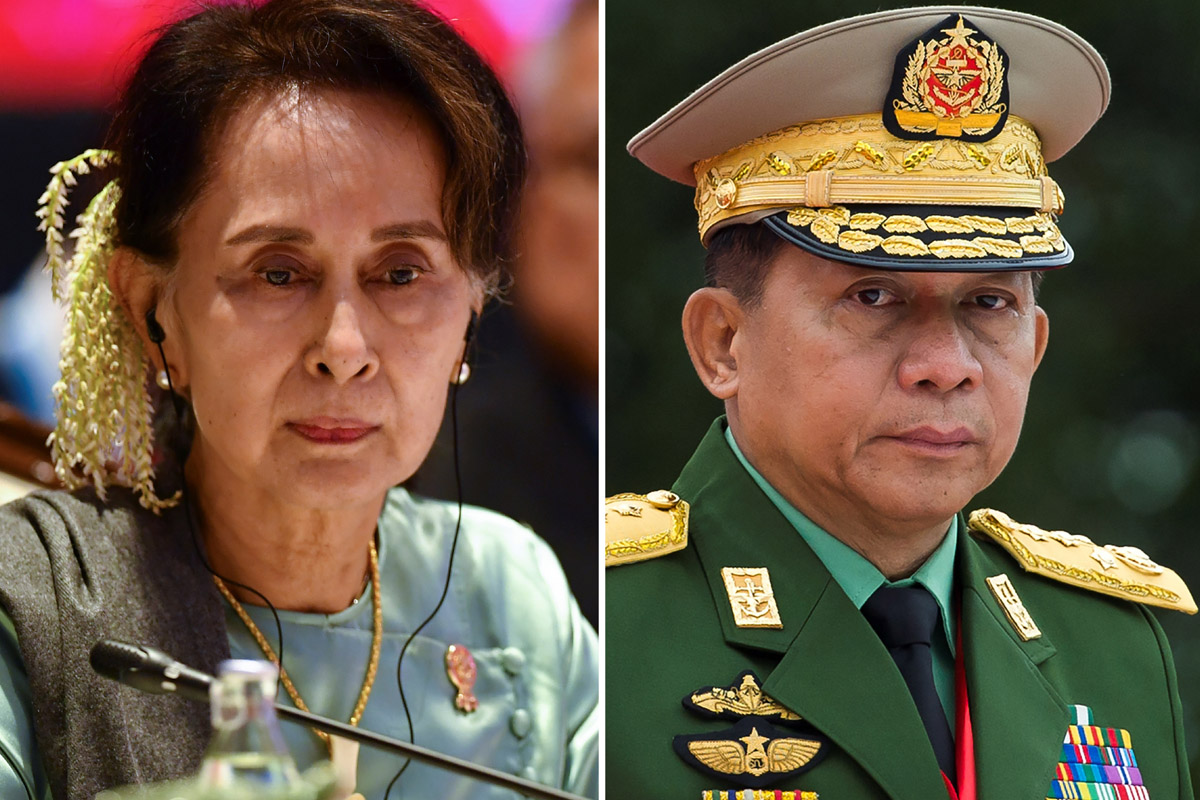Exactly two months after the Myanmar military seized power, post an election that Aung San Suu Kyi had won yet again, the screws have been turned on her with almost brutal severity.
The latest charge against her is that she violated the beleaguered country’s secrecy law. And one of the well-guarded secrets of the state is why for the past three decades the omnipotent military has been loath to allow Suu Kyi wield power, concordant with the certitudes of democracy.
Advertisement
The charge has been levelled a day after she appeared in court by video link in connection with earlier charges. She has now been charged with breaking a colonial-era official secrets law, the most serious charge filed against her thus far. Her lawyer was informed about the allegation just two days ago, one that carries a jail term of up to 14 years.
The comeuppance is no less critical than imprisonment for life. Suu Kyi was arrested on 1 February when the military grabbed power in a coup. It alleges that a general election last year, which saw Suu Kyi’s ruling National League for Democracy (NLD) win by a landslide, was fraudulent, though there is no evidence to substantiate the charge. Myanmar has been rocked by weeks of protests since the coup.
The upsurge, most particularly in Yangon and Mandalay, has been countered with increasingly violent military crackdowns. More than 500 people ~ including 40 children ~ have been killed so far. Suu Kyi has not been seen publicly since her arrest. Suu Kyi, along with three of her deposed cabinet ministers and a detained economic adviser, Sean Turnell, has been charged under the official secrets law.
The military authorities have been less than explicit in spelling out the provisions of the law and the violation thereof. The 75-yearold ousted leader already faces charges of corruption, with the military alleging that she accepted $600,000 in cash and 11 kg of gold.
She has also been charged with violating the country’s Natural Disaster Law and with possessing illegal walkietalkies. Myanmar’s military seized power after overthrowing the government and declared a state of emergency. Just days later, the civil disobedience movement began to emerge with professionals refusing to return to work in protest.
The movement quickly started to gain momentum and it was not long before hundreds of thousands of people began taking part in street protests. But there has increasingly been an escalation of violence between the police and civilians. According to the Assistance Association for Political Prisoners, more than 500 people have been killed since the military crackdown began.
The Tamidaw (military) ought to have been explicit in disclosing the violation of the official secrets law. The world in general and hoi-polloi in Myanmar have been kept guessing. Suffice it to register that Myanmar bears witness to a political conflict between the people and the military, a civil strife if ever there was one.











